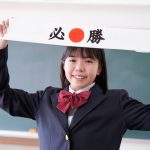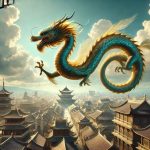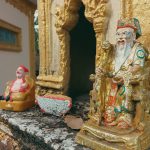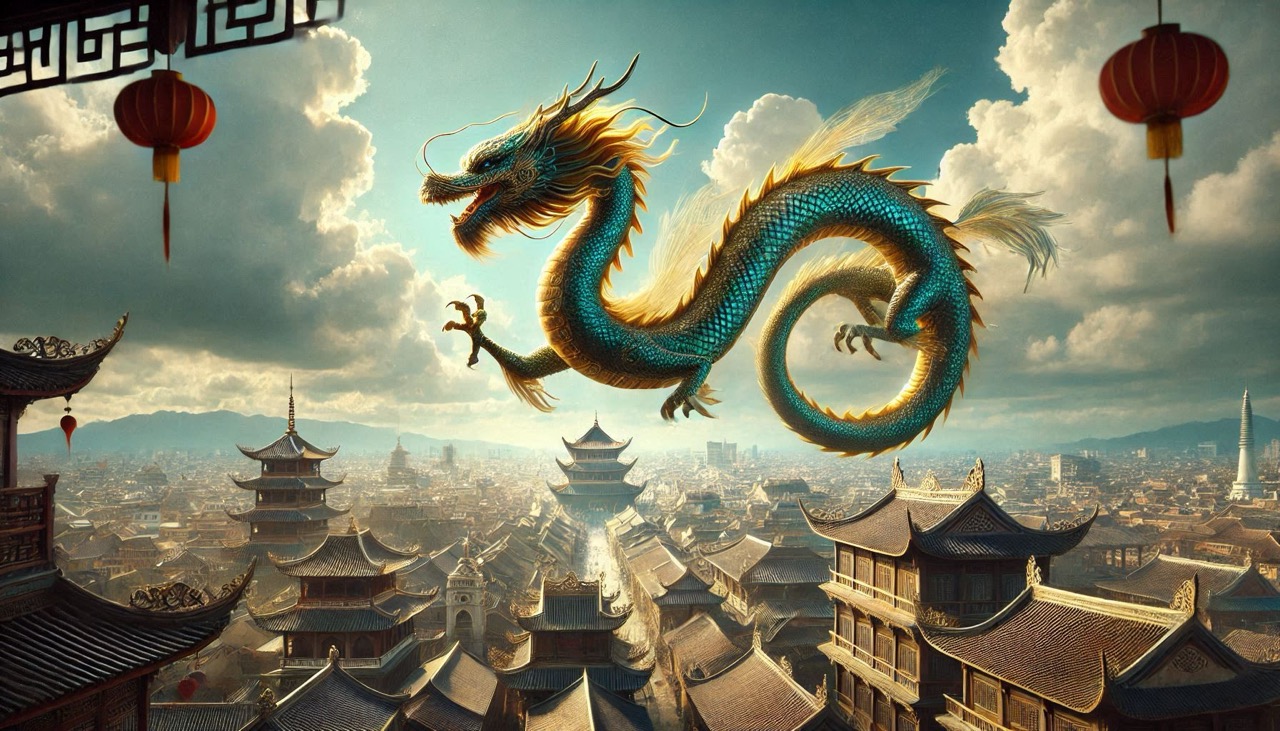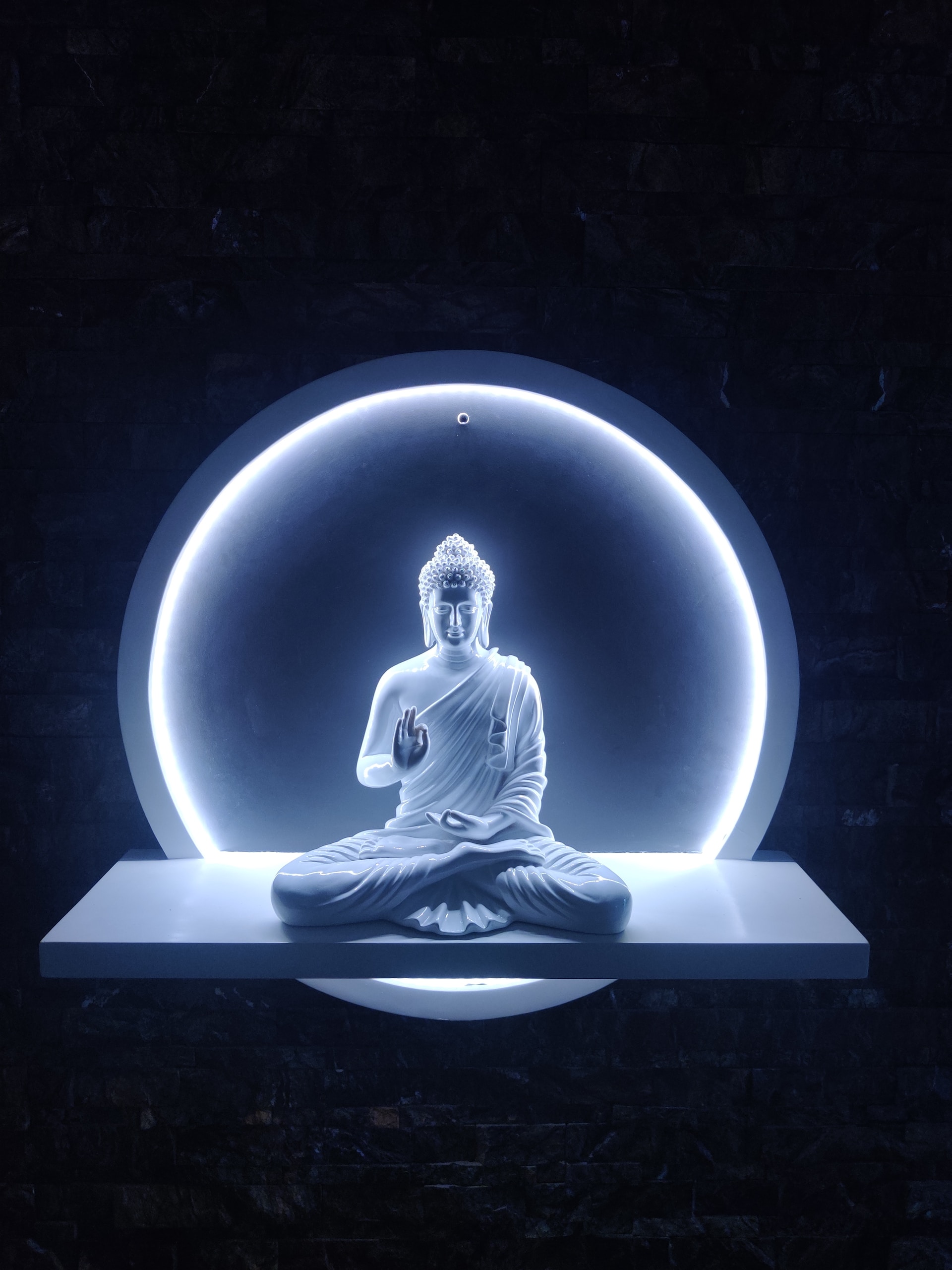In Taiwan, the term 天龍國人 (tiān lóng guó rén, ㄊㄧㄢ ㄌㄨㄥˊ ㄍㄨㄛˊ ㄖㄣˊ) is not just a phrase but a window into societal dynamics, humor, and regional identity. For Chinese learners, understanding this phrase provides a unique insight into Taiwan’s social and linguistic nuances. Let’s break down its meaning, origins, and usage while integrating Chinese characters, pinyin, and zhuyin to aid your learning.
Breaking Down the Term
- 天龍國 (tiān lóng guó, ㄊㄧㄢ ㄌㄨㄥˊ ㄍㄨㄛˊ)
- 天 (tiān, ㄊㄧㄢ): Heaven or sky, symbolizing something elevated or superior.
- 龍 (lóng, ㄌㄨㄥˊ): Dragon, a revered mythical creature in Chinese culture representing power and majesty.
- 國 (guó, ㄍㄨㄛˊ): Nation or country.
- 人 (rén, ㄖㄣˊ)
- This simply means “person” or “people.” When appended to 天龍國, it refers to the inhabitants of this so-called “Heavenly Dragon Nation.”
Thus, 天龍國人 describes people from Taipei who are perceived as enjoying special advantages or having an air of superiority over residents of other cities in Taiwan.
Origins of 天龍國人
The term 天龍國 originated from online forums and discussions in the early 2000s. It was coined by netizens to poke fun at Taipei’s metropolitan character and the way some Taipei residents seemed disconnected from the struggles of rural or less-developed areas. The term gained traction as an inside joke and evolved into a shorthand for highlighting regional disparities and stereotypes in Taiwan.
Taipei, being the political, economic, and cultural hub, often enjoys better infrastructure, job opportunities, and access to resources. This leads to perceptions of a “bubble” where Taipei residents may be unaware of or indifferent to the challenges faced by people in other parts of Taiwan, such as the rural south or outlying islands like 澎湖 (Pénghú, ㄆㄥˊ ㄏㄨˊ).
Usage of 天龍國人 in Context
In daily conversations or social media, 天龍國人 can be used humorously, sarcastically, or critically. Here are a few examples to illustrate its usage:
- Humorous Context
- A friend from Kaohsiung might joke, “你們天龍國人每天都吃下午茶嗎?”
(Nǐmen tiān lóng guó rén měitiān dōu chī xiàwǔchá ma? ㄋㄧˇ ㄇㄣ˙ ㄊㄧㄢ ㄌㄨㄥˊ ㄍㄨㄛˊ ㄖㄣˊ ㄇㄟˇ ㄊㄧㄢ ㄉㄡ ㄔ ㄒㄧㄚˋ ㄨˇ ㄔㄚˊ ㄇㄚ˙)
Translation: “Do you people from the Heavenly Dragon Nation have afternoon tea every day?”
- A friend from Kaohsiung might joke, “你們天龍國人每天都吃下午茶嗎?”
- Sarcastic Context
- When someone complains about minor inconveniences in Taipei, a person from another region might say, “天龍國人真的不懂什麼是辛苦。”
(Tiān lóng guó rén zhēn de bù dǒng shénme shì xīnkǔ. ㄊㄧㄢ ㄌㄨㄥˊ ㄍㄨㄛˊ ㄖㄣˊ ㄓㄣ ㄉㄜ ㄅㄨˋ ㄉㄨㄥˇ ㄕㄣˊ ㄇㄜ˙ ㄕˋ ㄒㄧㄣ ㄎㄨˇ)
Translation: “People from the Heavenly Dragon Nation really don’t understand what hardship is.”
- When someone complains about minor inconveniences in Taipei, a person from another region might say, “天龍國人真的不懂什麼是辛苦。”
- Critical Context
- During political debates, critics might accuse Taipei-centric policies of favoring 天龍國人 at the expense of other regions.
Cultural and Linguistic Insights
For Chinese learners, the term 天龍國人 reveals how language can encapsulate complex social issues. It is a blend of humor, criticism, and regional identity, showing how people use words to address disparities in a society.
- Humor and Irony
Taiwanese humor often incorporates playful exaggeration. By dubbing Taipei as 天龍國, people turn the perceived elitism into a lighthearted joke, even as they highlight real issues. - Regional Identity
Taiwan’s geography and development have created diverse regional cultures. Learning terms like 天龍國人 helps you understand these identities and engage more deeply with Taiwanese people. - Sociolinguistic Nuances
The term is often used informally, so you might encounter it in casual conversations, memes, or online forums rather than formal writing.
Broader Implications
The existence and popularity of 天龍國人 reflect broader societal trends:
- Urban-Rural Divide
This term highlights the disparities between urban centers like Taipei and rural areas. While Taipei thrives as a global city, other regions may face slower development. - Identity and Belonging
For some, being labeled 天龍國人 might feel like a compliment, while for others, it might seem like an unfair stereotype. This duality adds to the richness of its meaning. - Political Underpinnings
Taiwan’s politics often emphasize regional differences, with candidates appealing to specific demographics. The term 天龍國人 sometimes surfaces in political rhetoric to critique policies perceived as Taipei-focused.
Tips for Using 天龍國人 as a Learner
If you want to use 天龍國人 appropriately, consider these tips:
- Context Matters
This phrase is lighthearted but can carry a critical tone. Be aware of the context and tone of your conversation before using it. - Practice Pronunciation
Focus on mastering the pronunciation of 天 (tiān, ㄊㄧㄢ), 龍 (lóng, ㄌㄨㄥˊ), 國 (guó, ㄍㄨㄛˊ), and 人 (rén, ㄖㄣˊ). Practice with native speakers if possible. - Learn Related Terms
Expand your vocabulary with terms like 鄉下人 (xiāngxià rén, ㄒㄧㄤ ㄒㄧㄚˋ ㄖㄣˊ), meaning “country folk,” or 北漂 (běi piāo, ㄅㄟˇ ㄆㄧㄠ), referring to people who move to Taipei for work.
The Origin of 天龍國人 and Its Connection to One Piece
The term 天龍國人 (tiān lóng guó rén, ㄊㄧㄢ ㄌㄨㄥˊ ㄍㄨㄛˊ ㄖㄣˊ) might seem unique to Taiwan, but its roots can be traced back to the popular Japanese manga and anime series, One Piece (航海王, Hánghǎi Wáng, ㄏㄤˊ ㄏㄞˇ ㄨㄤˊ). In One Piece, the 天龍人 (Celestial Dragons) are a privileged class of people who live in luxury and view themselves as superior to others. Taiwanese netizens cleverly adapted this concept into the term 天龍國人, blending pop culture with local social commentary.
The Celestial Dragons in One Piece
In One Piece, the 天龍人 (Tenryūbito, 天龍人), or “Celestial Dragons,” are descendants of the creators of the World Government. They live in the 聖地 (Mariejois), a heavenly place of immense wealth and privilege, far removed from the struggles of ordinary people. Key traits of the Celestial Dragons include:
- Arrogance and Superiority
They see themselves as gods, looking down on others as mere commoners.- Example from the series: Celestial Dragons wear bubble helmets to avoid breathing the same air as others, symbolizing their disdain for ordinary humans.
- Immense Privilege
They have access to vast wealth, power, and protection from the World Government, ensuring they face no consequences for their actions. - Disconnection from Reality
Living in their secluded world, the Celestial Dragons are oblivious to the hardships and challenges faced by the rest of society.
How One Piece Inspired 天龍國人
The parallels between the 天龍人 in One Piece and perceptions of Taipei residents in Taiwan sparked the creation of the term 天龍國人:
- Geographic and Social Privilege
Taipei, as the political and economic hub of Taiwan, often enjoys superior infrastructure, job opportunities, and government resources. For people living outside Taipei, this can feel similar to the wealth and privilege of the Celestial Dragons. - Perceived Superiority
Just as the Celestial Dragons look down on others, some non-Taipei residents perceive certain Taipei locals as having an air of superiority, especially when discussing issues like urban development or lifestyle. - Bubble Effect
The Celestial Dragons’ bubble helmets symbolize their isolation from reality. Similarly, 天龍國人 humorously implies that Taipei residents live in a “bubble,” disconnected from the challenges of rural or less-developed regions of Taiwan.
Adoption and Spread of 天龍國人 in Taiwan
The term 天龍國人 emerged in online forums and social media in the early 2000s, particularly in gaming and anime communities where One Piece was already popular. Taiwanese netizens used the term to humorously critique the urban-rural divide, framing Taipei as 天龍國, or the “Heavenly Dragon Nation.”
- Satirical Tone
By borrowing the imagery of the Celestial Dragons, the term became a humorous yet sharp critique of societal inequalities in Taiwan. - Pop Culture Connection
The popularity of One Piece among Taiwanese youth ensured the term resonated widely, as fans instantly recognized the reference. - Evolving Usage
Over time, 天龍國人 evolved beyond its anime origins to become a broader cultural term, used in both lighthearted and serious discussions about regional disparities in Taiwan.
Examples of Usage in Taiwan
- Social Media Humor
- A person from Kaohsiung might post a picture of a crowded MRT in Taipei and caption it:
“天龍國人的日常生活。”
(Tiān lóng guó rén de rìcháng shēnghuó. ㄊㄧㄢ ㄌㄨㄥˊ ㄍㄨㄛˊ ㄖㄣˊ ㄉㄜ ㄖˋ ㄔㄤˊ ㄕㄥ ㄏㄨㄛˊ)
Translation: “Daily life of the Heavenly Dragon Nation people.”
- A person from Kaohsiung might post a picture of a crowded MRT in Taipei and caption it:
- Regional Disparity Commentary
- During political debates, someone might argue,
“政府的政策好像只為了天龍國人服務。”
(Zhèngfǔ de zhèngcè hǎoxiàng zhǐ wèile tiān lóng guó rén fúwù. ㄓㄥˋ ㄈㄨˇ ㄉㄜ ㄓㄥˋ ㄘㄜˋ ㄏㄠˇ ㄒㄧㄤˋ ㄓˇ ㄨㄟˋ ㄌㄜ˙ ㄊㄧㄢ ㄌㄨㄥˊ ㄍㄨㄛˊ ㄖㄣˊ ㄈㄨˊ ㄨˋ)
Translation: “The government’s policies seem to only serve the Heavenly Dragon Nation people.”
- During political debates, someone might argue,
Why One Piece Resonates with Taiwanese Society
The success of One Piece lies in its universal themes of freedom, justice, and resistance against oppressive systems. The Celestial Dragons serve as an exaggerated representation of systemic inequality, a concept that resonates globally and in Taiwan.
In Taiwan, the divide between urban Taipei and rural areas is often a topic of discussion. By linking this disparity to a well-known pop culture symbol, 天龍國人 became an accessible and relatable term for people across the island.
A Cautionary Note: When and How to Use 天龍國人
While the term 天龍國人 (tiān lóng guó rén, ㄊㄧㄢ ㄌㄨㄥˊ ㄍㄨㄛˊ ㄖㄣˊ) is often used humorously, it’s important to recognize that it can also carry a slightly offensive tone depending on the context and the people involved. For Chinese learners, it’s crucial to approach terms like this with cultural sensitivity and an awareness of social dynamics.
- Potential for Offense
- Implied Superiority: By using 天龍國人, you are essentially calling someone out for being privileged, detached, or superior—traits that not everyone finds amusing, especially if they feel the label is undeserved.
- Regional Stereotyping: Stereotyping Taipei residents as privileged or elitist can come across as dismissive of their individual experiences and struggles.
- Context is Key
- Casual Settings: This term is best used in casual or lighthearted conversations, especially among friends who are comfortable joking about regional differences.
- Online Humor: On social media or in memes, it’s commonly understood as a tongue-in-cheek critique.
- Avoid Using It with Strangers or in Formal Settings
- If you’re not familiar with someone’s background or views, using 天龍國人 could be misinterpreted as rude or condescending.
- In professional or formal contexts, it’s best to avoid slang or satirical terms altogether, as they might undermine your credibility or offend your audience.
- Ask Before Using
- If you’re unsure whether it’s appropriate to use the term, consider asking:
“我聽過‘天龍國人’,這是一個有趣的詞嗎?”
(Wǒ tīngguò ‘tiān lóng guó rén’, zhè shì yīgè yǒuqù de cí ma? ㄨㄛˇ ㄊㄧㄥ ㄍㄨㄛˋ ‘ㄊㄧㄢ ㄌㄨㄥˊ ㄍㄨㄛˊ ㄖㄣˊ’, ㄓㄜˋ ㄕˋ ㄧ ㄍㄜ˙ ㄧㄡˇ ㄑㄩˋ ㄉㄜ ㄘˊ ㄇㄚ˙)
Translation: “I’ve heard of ‘Heavenly Dragon Nation People.’ Is this a funny term?”
- If you’re unsure whether it’s appropriate to use the term, consider asking:
- Better Alternatives
If you want to talk about Taipei’s privileges or the urban-rural divide in a more neutral way, you can use phrases like:- 台北人 (Tái běi rén, ㄊㄞˊ ㄅㄟˇ ㄖㄣˊ): Taipei people (neutral).
- 都市居民 (Dūshì jūmín, ㄉㄨ ㄕˋ ㄐㄩ ㄇㄧㄣˊ): Urban residents (formal and neutral).
How to React if You Hear It
If someone uses 天龍國人 in your presence, observe their tone and the context. Often, it’s meant as a joke, but you can respond politely:
- “這個詞很有趣,我覺得它是開玩笑的吧?”
(Zhège cí hěn yǒuqù, wǒ juéde tā shì kāiwánxiào de ba? ㄓㄜˋ ㄍㄜ˙ ㄘˊ ㄏㄣˇ ㄧㄡˇ ㄑㄩˋ, ㄨㄛˇ ㄐㄩㄝˊ ㄉㄜ ㄊㄚ ㄕˋ ㄎㄞ ㄨㄢˊ ㄒㄧㄠˋ ㄉㄜ˙ ㄅㄚ˙)
Translation: “This term is interesting. I think it’s meant as a joke, right?”
This acknowledges the humor while showing that you’re aware of its satirical nature.
By being cautious and understanding the cultural nuances, you can use or discuss 天龍國人 thoughtfully, ensuring that your conversations remain respectful and enjoyable for everyone involved.
The concept of 天龍國人 (tiān lóng guó rén, ㄊㄧㄢ ㄌㄨㄥˊ ㄍㄨㄛˊ ㄖㄣˊ) reflects Taiwan’s social and economic dynamics in several significant ways. It highlights disparities in development, perceptions of privilege, and the tensions between urban and rural regions. Here’s how it ties into Taiwan’s broader context:
1. Urban-Rural Divide
Taiwan’s rapid modernization has created a pronounced divide between urban centers, like Taipei, and rural areas in the south or on outlying islands such as 澎湖 (Pénghú) and 金門 (Jīnmén).
- Taipei as the Epicenter of Development: Taipei is the political, economic, and cultural hub of Taiwan. It benefits from better infrastructure, public transportation, educational opportunities, and access to resources compared to rural areas. This creates the perception of Taipei as 天龍國, a privileged “nation” of its own.
- Economic Disparities: Average incomes and living standards are higher in Taipei, while many rural areas rely on agriculture, fishing, or lower-paying industries. This economic gap feeds into the stereotype that Taipei residents lead easier, more privileged lives.
2. Perceptions of Privilege
The term 天龍國人 implies that Taipei residents enjoy privileges that others in Taiwan do not, such as:
- Better Access to Services: Taipei has top-tier hospitals, international schools, and a wide array of cultural and entertainment venues, leading to a perception that residents live in a “bubble” of convenience and luxury.
- Cultural Dominance: As the cultural capital, Taipei often sets trends and dominates media representation, which can make other regions feel overlooked or undervalued.
This perception mirrors societal frustrations that the government prioritizes Taipei’s needs over those of other regions, reinforcing the label of 天龍國人.
3. Political Centralization
Taipei’s status as the capital means it is home to Taiwan’s central government, foreign embassies, and major financial institutions. This political centralization amplifies the perception that policies and funding are disproportionately focused on Taipei:
- Infrastructure Development: Projects like the high-speed rail and MRT expansions are seen as benefiting Taipei and its surrounding areas more than rural or southern regions.
- Policy Criticism: Politicians advocating for Taipei-centric initiatives are often accused of catering to 天龍國人 while neglecting the rest of the country.
This dynamic exacerbates feelings of inequality, especially in areas like Kaohsiung, Tainan, or Hualien, which have their own distinct cultures and economic struggles.
4. Social Identity and Regional Tensions
The term 天龍國人 also reflects regional identity and the subtle tensions between Taipei residents and those from other areas.
- Elitism vs. Resentment: People from outside Taipei may view Taipei residents as elitist or out of touch, while some Taipei residents may see rural areas as less developed or behind the times.
- Identity and Pride: Many Taiwanese take pride in their regional identities, such as being from the south or central regions, which contrasts with the stereotype of 天龍國人 as disconnected from these local identities.
5. Satire and Humor as Social Commentary
Taiwanese culture often uses humor and satire to address serious issues. The term 天龍國人 serves as a lighthearted critique of the urban-rural divide and social inequality:
- Highlighting Disparities: It points out the real differences in living standards, access to resources, and opportunities in a way that’s accessible and relatable.
- Pop Culture Influence: By tying the concept to One Piece’s Celestial Dragons, the term becomes a playful yet sharp way to critique privilege without being overly confrontational.
6. Changing Dynamics and Regional Development
As Taiwan continues to grow and regional governments invest in their own development, the concept of 天龍國人 may evolve:
- Decentralized Growth: Cities like Kaohsiung and Taichung are becoming economic and cultural hubs in their own right, challenging Taipei’s dominance.
- Improved Connectivity: Infrastructure projects like the high-speed rail and airport expansions aim to bridge the urban-rural gap, although perceptions of inequality persist.
There isn’t a direct equivalent to 天龍國人 (tiān lóng guó rén) in Western English, as the term is deeply tied to Taiwan’s unique cultural and societal context. However, there are some terms and expressions in English-speaking countries that share similar connotations of urban privilege, elitism, or regional disparity. Here are a few examples that might capture aspects of its meaning:
1. “Metropolitan Elites”
- Definition: This term refers to people in major cities, particularly capital cities, who are perceived as wealthy, educated, and disconnected from the realities of rural or working-class communities.
- Comparison: Like 天龍國人, “metropolitan elites” often carries a mix of humor and critique, implying that urban dwellers live in a bubble of privilege, unaware of struggles outside their cities.
- Context: Frequently used in political discussions to highlight the divide between urban and rural voters, particularly in the U.S., U.K., and Australia.
2. “Coastal Elites”
- Definition: Popular in the U.S., this term refers to people living on the East and West Coasts, especially in cities like New York, San Francisco, and Los Angeles, who are seen as progressive, affluent, and out of touch with “middle America.”
- Comparison: Similar to 天龍國人, “coastal elites” critiques regional and cultural divides, with a focus on economic and political disparities.
- Tone: While often used sarcastically, it can also be derogatory, depending on the context.
3. “Urbanites”
- Definition: A neutral or slightly humorous term for people who live in urban areas, often contrasted with rural residents.
- Comparison: While “urbanites” lacks the satirical sting of 天龍國人, it highlights the perceived differences between city and country living.
- Context: Used in discussions about lifestyle, cultural preferences, or political leanings (e.g., urban voters vs. rural voters).
4. “Champagne Socialists”
- Definition: A British term for wealthy individuals who advocate for progressive or leftist policies but are seen as hypocritical because they enjoy a privileged lifestyle.
- Comparison: Like 天龍國人, it combines humor and critique, focusing on perceived elitism and detachment from real-world struggles.
- Tone: Primarily sarcastic, often used in debates about authenticity and privilege.
5. “Big City Folk” or “City Slickers”
- Definition: Colloquial terms for people from major urban areas, often used by rural communities to describe city dwellers as out of touch with rural life.
- Comparison: These terms share the lighthearted yet critical tone of 天龍國人, emphasizing the cultural gap between urban and rural lifestyles.
- Context: More common in informal or humorous settings, especially in the U.S.
6. “Bubble Dwellers”
- Definition: A more general term for people who are perceived as living in an insular environment, unaware of realities outside their social or geographic circle.
- Comparison: Similar to 天龍國人, this term critiques people who are disconnected from broader societal issues due to their privileged position.
- Tone: Often used humorously but can carry an edge of criticism.
Key Differences
While these terms capture aspects of 天龍國人, there are notable differences:
- Pop Culture Connection: None of these English terms carry the specific pop culture reference to One Piece’s Celestial Dragons, which adds a unique layer of humor and satire to the Taiwanese term.
- Regional Specificity: Western terms like “coastal elites” or “metropolitan elites” are tied to specific regional dynamics (e.g., the U.S. coasts or London in the U.K.), while 天龍國人 is unique to Taipei.
- Degree of Humor: Many English terms, especially “champagne socialist” and “city slicker,” lean more toward humor or sarcasm, but they might lack the depth of social critique that 天龍國人 embodies in Taiwan.
Why No Perfect Equivalent?
The absence of an exact Western equivalent reflects differences in cultural and societal structures. In Taiwan, the term 天龍國人 resonates because of the country’s compact geography, centralization of resources in Taipei, and the pervasive influence of East Asian pop culture. Western societies, being geographically larger and often more decentralized, experience urban-rural divides differently.
However, exploring these parallels can offer valuable insights into how regional and cultural dynamics shape perceptions of privilege, identity, and humor across different societies.
Conclusion: The Significance of 天龍國人 in Understanding Taiwan’s Society
The term 天龍國人 (tiān lóng guó rén, ㄊㄧㄢ ㄌㄨㄥˊ ㄍㄨㄛˊ ㄖㄣˊ) may have begun as a humorous jab inspired by the Celestial Dragons in One Piece, but its relevance and resonance within Taiwanese society go far beyond its satirical origins. It reflects critical aspects of Taiwan’s social, economic, and cultural dynamics while offering a lens through which one can better understand the island’s complex regional relationships. To fully appreciate the term, we must consider its origins, cultural significance, and the broader implications it holds for Taiwan’s future.
A Cultural Mirror
At its core, 天龍國人 serves as a mirror reflecting the urban-rural divide in Taiwan. Taipei, as the nation’s capital, has long been a symbol of modernization, wealth, and opportunity. With its towering skyscrapers, efficient public transportation, and bustling lifestyle, Taipei epitomizes progress. However, this progress has not been uniformly distributed across Taiwan, creating a disparity that fuels the perception of Taipei as 天龍國—an exclusive “Heavenly Dragon Nation.”
The term captures the frustration and humor of those outside Taipei who view the capital as a bubble of privilege, detached from the realities faced by rural and less-developed regions. This cultural commentary sheds light on Taiwan’s diversity and the challenges it faces in balancing development across regions.
The Role of Humor and Satire
The popularity of 天龍國人 owes much to Taiwan’s tradition of using humor to address serious issues. Taiwanese people often use satire to critique social and political dynamics, and this term is no exception. By drawing a parallel between Taipei residents and the Celestial Dragons of One Piece, the term transforms social inequality into an accessible and entertaining concept.
However, humor is a double-edged sword. While it can foster solidarity and shared understanding, it can also inadvertently reinforce stereotypes or offend those who feel unfairly labeled. This dual nature of humor makes 天龍國人 a term that must be used carefully, especially by those unfamiliar with the cultural nuances behind it.
Understanding Regional Dynamics
To grasp the full meaning of 天龍國人, one must delve into Taiwan’s regional dynamics. Taiwan’s geography plays a significant role in shaping these relationships. The mountainous terrain and concentration of resources in the north have historically given Taipei an advantage over other regions. Southern cities like Kaohsiung and Tainan, though rich in culture and history, often receive less attention in terms of economic investment and infrastructure development.
This divide creates a perception of inequality, with Taipei residents seen as living in a world apart. For those outside the capital, the term 天龍國人 encapsulates a feeling of being overlooked or underrepresented. Meanwhile, for Taipei residents, it may come across as an unfair generalization that ignores their individual struggles and perspectives.
Political and Economic Implications
The concept of 天龍國人 is also tied to Taiwan’s political and economic structures. As the seat of government and a hub for international business, Taipei enjoys significant advantages. Policies and initiatives often prioritize the capital, reinforcing the perception that it is a privileged enclave. For instance:
- Economic Opportunities: High-paying jobs and multinational companies are disproportionately concentrated in Taipei, attracting talent from across Taiwan but also centralizing economic activity.
- Infrastructure Investment: Projects like the Taipei MRT system and other urban developments further elevate the city’s status while highlighting the slower pace of progress in rural areas.
These dynamics contribute to the enduring relevance of 天龍國人 as a critique of centralization and perceived favoritism in governance.
The Influence of One Piece
The adaptation of the Celestial Dragons from One Piece into the term 天龍國人 is a fascinating example of how global pop culture can intersect with local issues. In the series, the Celestial Dragons are portrayed as oblivious, arrogant, and privileged individuals living in a bubble of luxury, disconnected from the struggles of ordinary people. This imagery resonates with the way some perceive Taipei’s relationship with the rest of Taiwan.
The cleverness of the term lies in its ability to blend this global reference with local context, making it both relatable and impactful. For fans of One Piece, the term carries an added layer of humor and depth, enriching its use as a social critique.
Navigating Sensitivity and Respect
While 天龍國人 is often used humorously, it is essential to acknowledge its potential to offend. The term can come across as dismissive or even derogatory, especially to those who feel it unfairly stereotypes Taipei residents. This is particularly true in formal or unfamiliar settings, where such terms might not be understood as playful banter.
For learners of Chinese and those unfamiliar with Taiwanese culture, it is important to approach terms like 天龍國人 with caution. Understanding the context, tone, and audience is critical to using the term respectfully. When in doubt, opting for neutral language to describe regional differences is always a safer choice.
Broader Implications for Taiwanese Society
The enduring relevance of 天龍國人 highlights the challenges Taiwan faces as it continues to evolve. As cities like Kaohsiung and Taichung grow into economic and cultural hubs, the dominance of Taipei may begin to wane, potentially reducing regional tensions. However, addressing the underlying disparities that give rise to terms like 天龍國人 requires concerted efforts, including:
- Decentralized Development: Investing in infrastructure, education, and job creation across Taiwan can help bridge the urban-rural divide.
- Cultural Representation: Celebrating and promoting the unique identities of all regions fosters mutual respect and understanding.
- Policy Equity: Ensuring that government policies and funding benefit all regions equally can mitigate feelings of exclusion or favoritism.
These steps are vital for creating a more balanced and inclusive society, one where terms like 天龍國人 might one day lose their critical edge.
Lessons for Language Learners
For learners of Chinese, the term 天龍國人 is an excellent example of how language and culture are deeply intertwined. By exploring its origins, meanings, and usage, learners gain valuable insights into Taiwanese humor, social dynamics, and regional identity. It also serves as a reminder that language is not just about communication—it is a tool for storytelling, connection, and reflection.
As you encounter similar terms in your studies, take the time to understand their cultural context and the perspectives they represent. This approach not only enhances your linguistic skills but also deepens your appreciation for the richness of the Chinese language and the societies that speak it.
Final Thoughts
The concept of 天龍國人 is a fascinating cultural artifact, born from a mix of pop culture, humor, and social critique. It captures the complexities of Taiwan’s urban-rural divide, the privileges of Taipei, and the tensions these disparities create. While often used as a playful term, it also serves as a powerful reminder of the importance of equity and understanding in a rapidly changing society.
Video Resources
